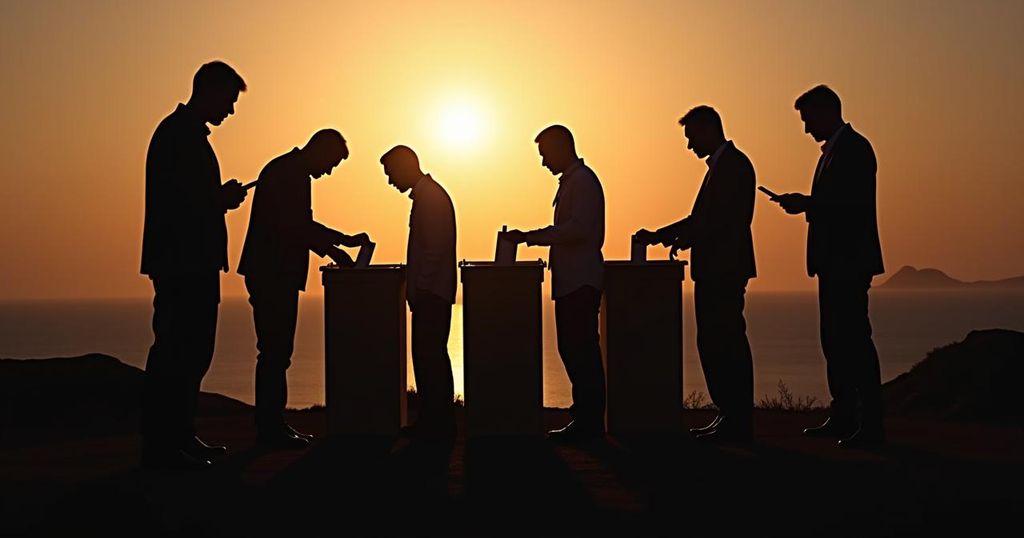Tunisia Presidential Election Amid Repression and Political Discontent

Tunisia’s presidential election features incumbent Kais Saied as the frontrunner, facing limited opposition after 14 candidates were barred from the race amid a crackdown on dissent. With a disillusioned electorate and a lack of campaigning, there is low anticipation for significant change as Tunisia grapples with severe economic challenges. Human rights organizations criticize the ongoing jailing of political opponents, raising concerns about the future of democracy in the country. The election is seen as potentially finalizing the decline of democratic practices initiated in the aftermath of the Arab Spring.
Tunisia is conducting a presidential election amidst an environment characterized by repression and limited political options. Incumbent President Kais Saied is widely favored to secure another term, facing only two opposition candidates: Zouhair Maghzaoui, a former lawmaker who supported Saied’s 2021 accumulation of power, and Ayachi Zammel, a businessman currently jailed under allegations of forgery for his candidacy nomination. The Tunisian election commission has barred 14 potential candidates from participating in the election, significantly stifling democratic choice at a critical time for the country. Only three years after Saied’s substantial power consolidation, this election is perceived as a pivotal moment that may signal the end of Tunisia’s democratic journey, a path the country embraced following the Arab Spring uprisings. Despite expectations of around 9.7 million voters, there is a noted lack of enthusiasm due to overwhelming feelings of resignation among the electorate, many of whom do not anticipate meaningful change amid escalating economic challenges. A young Tunisian voter expressed disillusionment by stating that he and his friends found participation in politics “useless”. Saied’s regime has faced international criticism, particularly from human rights organizations, for the ongoing detainment of political opponents, such as Rached Ghannouchi of Ennahdha and Abir Moussi of the Free Destourian Party. The prevailing atmosphere is devoid of traditional campaign activities, with only Saied’s propaganda visible in public space. Demonstrations against his leadership further illustrate public dissatisfaction, with protesters branding him a “Pharaoh manipulating the law”. As polling begins, the International Crisis Group cautions that another victory for Saied may exacerbate Tunisia’s dire socio-economic conditions and reinforce his authoritarian governance.
The presidential election in Tunisia represents a crucial juncture for the nation, echoing sentiments surrounding the decline of its democratic practices which began after the Arab Spring. Since taking office in 2019, President Kais Saied has enacted sweeping changes to consolidate authority, including a controversial power grab in 2021 resulting in a new constitution. This election occurs in an atmosphere of political suppression, marked by the disqualification of numerous candidates from the electoral process, indicating a significant contraction of political pluralism. As dissatisfaction grows among citizens regarding their economic situation, the upcoming election reflects a broader struggle between authoritarianism and democratic aspirations in Tunisia.
In essence, the presidential election in Tunisia signals a troubling continuation of an authoritarian trajectory under Kais Saied. As popular disenchantment with the electoral process rises and political opposition faces severe repression, the prospects for Tunisia’s democracy appear bleak. The low voter enthusiasm and the current socio-economic hardships underscore an urgent need for genuine political reforms to restore faith in the democratic system. Without substantive changes, the looming victory of Saied may further entrench a governance model that prioritizes control over democratic accountability.
Original Source: www.france24.com







